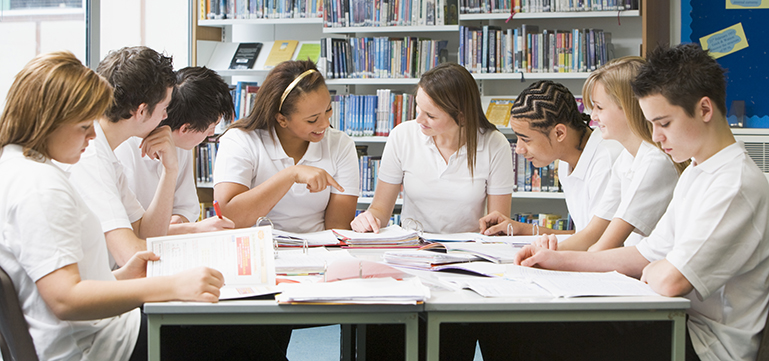Ambition is the key to achievement

Context and background to sector-leading practice
The Cathedral School is a co-educational independent day school in Cardiff for pupils aged 3-16.
The school has been keen to develop the quality of self-evaluation through the use of first-hand evidence in order to create a culture of accountability within both staff and pupils.
Description of nature of strategy or activity
In September 2010, the school appointed external teacher mentors as advisors to the staff on their teaching. In addition to teaching observations carried out by senior managers, these teacher mentors (one in the primary phase, one in the secondary phase) observe teaching by all staff regularly. They provide feedback to teachers on the lessons they have observed giving particular focus to specific aspects of teaching. The mentors are experienced inspectors who work on a consultancy basis for the school. They are not part of the hierarchy of the school and act as a critical friend. The lesson observation record is discussed in detail with the teacher after the lesson, and a copy passed to the headteacher who uses it as part of the first-hand evidence for the school’s self-evaluation.
Mentors visit each week, on different days to ensure that, over an academic year, they observe a wide range of teaching and that every teacher is seen with the same approximate regularity. Each mentor submits a termly report identifying common strengths in teaching and those areas which need further development. The reports are shared with the staff and are a basis for promoting good practice among teachers.
‘Challenge Grades’ were introduced in September 2010 in response to a need for better use of academic data and to monitor pupils progress through each key stage more effectively. The system is modelled upon the practice of a fellow Woodard school. In the secondary phase, pupils undergo MidYIS testing upon entry to Year 7, and this data is used to identify, in each subject, the grade the pupil is most likely to achieve at GCSE. To this the school adds a full grade, and the resulting grade is known as the ‘Challenge Grade’ (ie the grade we challenge the pupil to achieve at GCSE). Every six weeks, pupils’ attainment in each subject is compared to their ‘Challenge Grade’. A review grade of +1, 0, -1 or -2 (indicating performance above, at, below or well below the ‘Challenge Grade’) is awarded and a target for improvement is given by the teacher. This review is discussed between form tutors and their tutees and overall targets for improvement are agreed. Parents are able to respond to the review when it is sent home.
In September 2011, ‘Challenge Grades’ were extended to key stage 2. ‘Challenge Grades’ are identified for English, mathematics, science, information and communication technology, history and geography. These grades are based on National Curriculum levels derived from standardised assessments at the end of key stage 1. Coloured symbols are used in place of review grades to indicate how well a pupil is progressing towards achieving these ‘Challenge Grades’.
Annual Reviews carried out each September by each department and section of the school are another crucial part of the school’s academic self-evaluation. These review identify evidenced strengths and areas for development in a number of areas, such as academic achievement, teaching and learning, preparation and training and indicate suitable improvement startegies. The process is an open and realistic in-house evaluation that is designed to be constructive and developmental. The review document and the departmental development plan forms the basis of discussion between the head of department, headteacher and director of studies. A short list of action points are drawn up which provide a useful framework for moving the department forward. Halfway through the year, the action points are revisited to assess progress made. A similar Annual Review is carried out by the junior and infant sections.
What impact has this work had on provision and learners’ standards?
The ‘Challenge Grades’ initiative, in both primary and secondary phases, has greatly improved the effective use of academic data, improved the quality of reporting to parents, promoted ambition in the pupils and their teachers, facilitated meaningful dialogue between pupils and tutors about standards and progress, and enabled pupils to measure their achievement against their own potential, rather than against one another. The short time interval between each review, when the slate is wiped clean, means that pupils have a manageable timeframe in which to improve. The 2011 GCSE results showed a very strong correlation between ‘Challenge Grades’ and the grades pupils achieved.
The termly reports from the external mentors reflect an improvement in teaching and learning. Pupils have also commented positively about improvements in teaching methods and the quality of their learning experiences both in and out of the classroom.
Value-added data at the end of key stages 2 and 4 indicates that nearly all pupils make very good progress.
Useful links
Other resources from this provider

Evolving approaches to blended learning in independent schools

Reshaping the school vision
